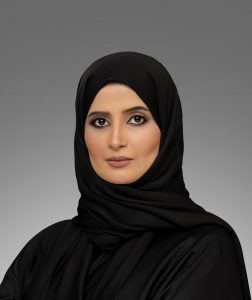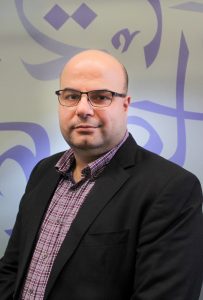Home » 2023
Yearly Archives: 2023
Recent Posts
- Strengthening Industry Collaboration: CSE Hosts IAB Meeting for CS and CE Programs
- CSE Students Secure First Place at Snoonu Hackathon 2026
- CSE Faculties Receive Grants on Institutional Collaboration between Qatar University & Khalifa University
- Computer Engineering Practicum Demo Day & Contest (4th Edition)
- CSE faculty receives research funding from Google
Archives
- January 2026
- December 2025
- November 2025
- September 2025
- August 2025
- May 2025
- February 2025
- January 2025
- December 2024
- November 2024
- September 2024
- June 2024
- May 2024
- April 2024
- March 2024
- February 2024
- January 2024
- December 2023
- November 2023
- October 2023
- September 2023
- June 2023
- May 2023
- April 2023
- March 2023
- February 2023
- January 2023
- December 2022
- November 2022
- October 2022
- September 2022
- August 2022
- May 2022
- April 2022
- March 2022
- February 2022
- January 2022
- December 2021
- November 2021
- October 2021
- September 2021
- August 2021
- July 2021
- May 2021
- April 2021
- March 2021
- February 2021
- January 2021
- December 2020
- November 2020
- October 2020
- September 2020
- August 2020
Categories
Humanitarian Drone Competition by CSE Students
December 11, 2023 / Leave a comment
The CSE department has organized an “Humanitarian Drone Competition” as part of the course project for the “Computer Engineering Practicum” course..
The motivation for this year’s project is to show solidarity with people in Gaza. Unlike typical control circuits used in the drones, the students of the course were asked to design a control circuit for the drone with only passive electronic components and basic IC to control the motors of the drones. In order to achieve this, the students had to go through phases of idea description, schematic design, breadboard prototyping, and a final soldered prototype that has to have at least three functionalities that can assist the humanitarian mission.
The winning drones were judged based on their design, number of functionalities incorporated in the design, A4 poster and a video montage of their work carried out during the project.
The winners in the competition were:
Male Students
- First place: Yusuf Siddiqui, Iheb Zouari, Mohamed Ali, Mahmoud Ali
- Second place: Mubarak AlHajri, Abdulrahman Marwan Aboumadi, Ahmed Miqdad, Deya Aldeen Abdelbaset
- Third place: Muhammad Khan, Abdullah Irhimeh, Laith Nasrallah
Female Students
- First place: Isra Ali, Yoma Mohammed, Maya Attia, Nooralhodaa Elshawadfy
- Second place: Roaa Shady, Noha Elgamal, Amna Al-Ahmed
- Third place: Aisha Al Mannai, Naema Al Abdulla, Hila Al Dosari, Fatima Al Ali
The competition was judged by our faculty members Eng. Amelle Bedair , Eng. Farah E-Qawasma and Eng. Amal Elmasri. The prizes for the winners were awarded by the HoD Prof. Amr Mohamed.
Thanks Voltaat for sponsoring the prizes worth 2,000 QAR. Thanks to Dr. Wadha Labda for her kind support as well to make the awards ceremony in the ICET’23 events. Thanks for the course coordinator Eng. Naveed Nawaz, course instructors Eng. Leila Ghastli and Eng. Tamer Eltaras, and all other faculties for making this competition a successful one.
Invitation to seminar: Deep Learning Based Sematic Segmentation for Different Retinal Morphologies Detection
November 20, 2023 / Leave a comment
Don’t miss the seminar!

CSE faculties awarded with Internal Grants (2024, Cycle 7)
November 16, 2023 / Leave a comment
Five of our faculty members (Dr. Noora Fetais, Dr. Abdelaziz Bouras, Dr. Mahmoud Barhamgi, Dr.Khaled Shaban, and Dr. Elias Yacoub) and their research teams have just been been awarded QU internal grants 2024 (Cycle 7) in the different categories. Congratulations!
Here are more details about the winning projects:
Award Category: Collaborative grants (CG)

Project title: Practical Adversarial Machine Learning for Network Intrusion Detection Systems
Project team: LPI: Dr. Noora Fetais (QU), PIs: Dr. Khaled Khan (QU), Dr. Armstrong Nhlabatsi (QU), Consultant: Dr. Dan Dongseong Kim (University of Queensland)
Project abstract:
An adversarial example exploits an imperceptible attribute of the input to cause a deep-learning (DL) algorithm to misclassify. Attackers intentionally design these adversarial examples to confuse the model so that it makes a mistake. Some researchers hypothesize that adversarial examples are caused by highly abstract representations, which make the decision function extremely discontinuous. In contrast, others claim that adversarial examples occur due to the locally linear nature of neural networks. As a result of adversarial examples, researchers are developing countermeasures to defend against adversarial attacks against DL-based applications, especially in security-critical domains such as Network Intrusion Detection Systems (NIDS). However, the security of NIDS under adversarial attacks has not been well explored. The aim of this research is to enhance the understanding of practical adversarial attacks on NIDS. Here, a “practical” adversarial attack means the output of the attack is a set of replayable network packets, and adversarial attacks specifically refer to evasion attacks that slightly modify the input to bypass detection. To achieve these goals, this research proposal seeks to:
- Develop an adversarial attack generator tailored for NIDS and present a comprehensive evaluation framework to determine the severity of the attack on the NIDS.
- Propose a defense mechanism to defend against adversarial attacks and formulate another evaluation framework to examine the strength of the defense.
The proposed project is expected to bridge previously identified limitations in adversarial NIDS attacks/defenses. To enable automation and deployment of future attacks/defenses, software toolbox/frameworks will be designed and developed. More importantly, the resulting framework, methods, techniques, and tools of this project are expected to be readily applicable in real world settings.
Award Category: Collaboration Co-Fund (IRCC) Grants
Project title: MESledger: A decentralized intelligent control of production systems based on AI and Blockchain technologies.

Project team: LPI: Dr. Abdelaziz Bouras (QU), PIs: Dr. Khaled Benfriha and Améziane Aoussat (ENSAM Institute of technology, Paris-France). Dr. Abdelhak Belhi (JBJADS, Qatar). Dr. Mahmoud Barhamgi and Dr. Loay Ismael Sabry (QU)
Project Abstract: The project focuses on the development of a new system for the intelligent control of digitalized production systems. Indeed, the old production control systems, based essentially on automats (Programable Logical Controllers), are not adapted to the new manufacturing processes, said digitalized. Such new system will be confronted with a mass of data generated by the IoT layer and the various IT systems required for operation.
It becomes important to think about a new “manufacturing execution system” able to analyze the data, to order dynamically the operations and to take the adequate decisions in front of malfunctions. Moreover, such system will be able to optimize production operations according to priorities, such as cost, energy or production time. To do this, it would be necessary to review the design of a manufacturing operation, known as standard and parametric. Thus, the system should be intelligent enough to configure the values of the parameters according to the priorities.
The industrial stakes are high. Companies will not be able to reach the expected performances without the intelligent exploitation of the generated data. From a scientific point of view, the challenge is to develop intelligent and scalable algorithms that can drive a digital production system with a high level of autonomy.
Project title: Building Transparent, Fair and Privacy-preserving Smart City Applications

Project team: LPI: Dr. Mahmoud Barhamgi (QU), PIs: Dr. Saeed Salem, Dr. Qutaibah m. Malluhi, Dr. Noora Fetais (QU), Dr. Daniela Grigory (Paris-Dauhine University, France), Dr. David Camacho (Madrid University, Spain)
Project abstract: In Qatar, as well as in all advanced countries, Intelligent Cyber-Physical Systems (ICPSs) are increasingly becoming an integral part of people’s life. Their applications are exploited today to optimize many aspects of our daily lives including in healthcare (e.g., remote patient monitoring networks), smart food supply chains, smart road infrastructures (e.g. for efficient real-time regulation of traffic), and smart grids (e.g., for greener energy consumption). All of these applications are collectively called smart city applications.
They collect huge amounts of data about us, process and exploit them to make important decisions that affect our lives both positively or negatively. As these smart systems and applications are expected to grow and stay with us, it is important to ensure they are designed and operationalized in a way to respect the fundamental rights of their users.
In this project, we focus on how three fundamental rights of users including Transparency, Fairness, and Privacy can be ensured in ICPSs. Specifically, we propose models, mechanisms and software tools allowing the users of such systems to monitor how and why a decision affecting them was taken by the system, based on what data as well as how fairly they have been treated by the system compared to their peers or other groups of users. The provided justifications are computed by our solution while respecting the privacy of all users or data subjects impacted by the system. We intend to apply and validate our solution in two specific smart city applications including smart patient monitoring and traffic optimization.
Project title: DeIN: A Drone-based Inspection System for Outdoor Insulators in Qatar.

Project team: LPI: Dr. Khaled Shaban (QU), PIs: Dr. Saeed Salem (QU), Dr. Ayman El-Hag (University of Waterloo)
Project abstract: This research proposal aims to enhance the effectiveness of inspection systems for outdoor, high voltage insulators utilized in the electric power transmission networks of Qatar, the Gulf region, and beyond. The proposed research is significant due to the criticality of outdoor insulators in supporting and insulating overhead power lines (OHPL) and the impact of their poor electrical performance on the resilience of the entire transmission network. Insulators are subjected to harsh environmental factors such as hot and humid weather, heavy dust and sand depositions, and salt buildup, leading to accelerated aging and increased maintenance costs. Insulators are responsible for over 70% of power line outages and require continuous monitoring to prevent premature failures. While traditional inspection methods are expensive, time-intensive, and laborious, aerial-based robots, such as drones, equipped with sensors and advanced algorithms offer a promising solution. However, the data obtained from drones is susceptible to noise and uncertainties, affecting their accuracy and limiting their inspection capabilities. The proposed solution, DeIN, aims to develop a novel drone-based inspection system that combines vision and radiation-based sensors with state-of-the-art representation learning, fusion, and deep learning (DL) algorithms. DeIN offers advantages such as reduced inspection time and cost, increased personnel safety, enhanced precision, repeatability, and improved access to OHPL, eliminating user subjectivity. Moreover, the use of radiation-based sensors provides enhanced inspection capabilities for detecting surface cracks and internal voids, complementing the vision-based sensors. The proposed research contributes to the development of a reliable and efficient inspection system for high voltage insulators in Qatar, the Gulf region, and beyond, ensuring the reliability and security of power transmission infrastructure.
Award Category: CD-IRCC Sustainable Development Goals (SDGs)/Local Projects)
Project title: Wearable Bracelet and Machine Learning for Remote Diagnosis and Pandemic Infection Detection.

Project team: LPI: Prof. Elias Yaacoub (QU), PIs: Dr. Ahmed Badawy and Dr. Khalid Abualsaud (QU)
Project abstract: More than three years into the coronavirus disease 2019 (COVID-19) pandemic, it can be noted that the measures put in place for societies to manage the spread of this disease could have been better. For example, contact tracing mobile applications used to curb the spread of COVID-19 need additional enhancements to allow health care professionals to better understand the proliferation of the disease and to lessen the burden on hospitals and medical centers. In this project, we present an intelligent solution to remotely self-monitor COVID-19 symptoms to help rapidly identify and detect suspected positives. The proposed intelligent solution is based on using a near-field communications (NFC) wristband that collects body temperature, heart rate and SpO2 levels. It is connected to a dedicated mobile application to intelligently draw conclusions from the data (COVID-19 symptoms) it collects. Moreover, the application is trained to analyze cough sounds and detect the probability of infection. Current results show more than 90% of detection accuracy. The work in the project aims to deliver a prototype at TRL 5 or 6, where the bracelet with embedded sensors will be fully functional and the readings are sent to the mobile application, where they can be jointly analyzed with coughing sounds to further enhance performance. The proposed system can be adapted to future pandemics based on respiratory symptoms.
CSE Faculty Wins Two Best Poster Awards at QU Annual Research Forum 2023
November 16, 2023 / Leave a comment

Prof. Sumaya Al-Maadeed and her research team have just won two Best Poster Awards at the Qatar University Annual Research Forum & Exhibition 2023. The awards were received in Information and Communications Technologies discipline for Undergraduate Students and Faculty and Postdoc categories. Congratulation!
Category: Undergraduate Studeents
Project’s title: “Enhancing Ultrasound Intima-Media Complex (IMC) Segmentation: Leveraging four Deep Learning Models and Self-ONN integration”.
Project’s team: Hanadi Hassen, Omar Elharrouss, Najmath Ottakath, Somaya Al Maadeed, Mohammed E.H. Chowdhury, Ahmed Bouridane, Susu Zughaier
Project’s abstract: Carotid intima-media thickness (CIMT) is a commonly used indicator for atherosclerosis, typically evaluated through carotid ultrasound images. The utilization of advanced deep learning techniques for the analysis, segmentation, and CIMT measurement in these images remains relatively unexplored. This research aims to assess the effectiveness of four recent deep learning models, including a convolutional neural network (CNN), a self-organizing operational neural network (self-ONN), a transformer-based network, and a pixel difference convolution-based network. The evaluation is conducted on segmenting the intima-media complex (IMC) using the CUBS dataset, which comprises ultrasound images from both sides of the neck of 1088 participants. The findings reveal that the self-ONN model surpasses the traditional CNN-based approach, while the pixel difference and transformer-based models exhibit the most robust performance in segmentation.
Category: Faculty and Postdoc
Project’s title: “Automated device for detection and grading of carotid artery plaque deposit”.
Project’s team: Fatma Al-Mannai, Maryam Al-Kuwari, Ala El-Bardini, Najmath Ottakath, Somaya Al-Maadeed
Project’s abstract: The escalating global incidence of lifestyle-related risk factors, including conditions such as diabetes and elevated cholesterol levels has heightened the prevalence of cardiovascular diseases and stroke. Notably, the accumulation of plaque within the carotid artery is a primary precursor to stenosis, a condition closely associated with the onset of strokes. In response to this pressing health concern, we present the development of a state-of-the-art system engineered system to acquire ultrasound images and precisely delineate the carotid artery intima-media using artificial intelligence. Furthermore, our innovative system provides a graded assessment of stenosis risk within the carotid artery, offering timely notifications to both patients and medical practitioners. Operating on the Raspberry Pi platform, our solution incorporates a user-friendly display and communication interface, capable of promptly alerting patients and doctors to any impending stenosis-related risks.
We are organizing WISE-2024: Calls for Papers, Special Tracks & Workshops
November 15, 2023 / Leave a comment
We are organizing WISE International Conference at QU!
CSE department invites you to contribute with your research papers and participate in our hosted and organized International Web Information Systems Engineering conference (WISE 2024).
You can find all details at the conference website at https://wise2024-qatar.com/.


